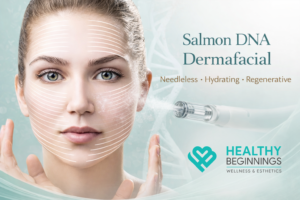Exploring the Health Benefits of NAD
Nicotinamide Adenine Dinucleotide (NAD) is a vital coenzyme found in every living cell, playing a pivotal role in numerous biological processes. These processes include energy production, DNA repair, and cellular communication. As we age, our NAD levels decline, which has sparked interest in NAD supplements for their potential health benefits. In this article, we will delve into what NAD does, how to take it, and whether it can truly benefit your health.
NAD serves as a cornerstone for converting food into energy. It supports enzymes in performing chemical reactions involved in metabolism and is indispensable for the functioning of mitochondria, the powerhouses of cells. Additionally, NAD plays a significant role in repairing damaged DNA, which helps maintain the integrity of our genetic material.
NAD is crucial in the metabolic pathways that produce ATP, the primary energy currency of cells. It acts as a carrier for electrons, facilitating the chemical reactions that generate energy. Without sufficient NAD, our cells would face challenges in producing the energy required for daily activities and bodily functions. This is particularly important for high-energy-demand tissues such as muscles and the brain, which rely heavily on efficient ATP production.
DNA can be damaged by a variety of factors, including UV radiation, environmental toxins, and normal metabolic processes. NAD is integral in activating enzymes that repair damaged DNA, thereby preventing mutations and maintaining cellular health. This repair function is especially crucial as we age, given that the ability to repair DNA diminishes over time. Maintaining adequate NAD levels may help mitigate age-related decline in cellular function and reduce the risk of age-associated diseases.
NAD and Cellular Communication
Beyond energy production and DNA repair, NAD is vital for cellular communication. It acts as a signaling molecule in various pathways, influencing processes such as inflammation and stress responses. By mediating communication between cells, NAD ensures that cellular processes are synchronized and that the body’s response to internal and external stimuli is efficient. This communication role is essential for maintaining homeostasis and overall health.
How to Take NAD
NAD supplements are available in various forms, including pills, tablets, powders, and liquids. They can also be administered intravenously or through injections, depending on individual preferences and health needs.
Oral NAD Supplements
Many people wonder if taking NAD orally is effective. While NAD itself is not easily absorbed through the digestive tract, its precursors, such as Nicotinamide Riboside (NR) and Nicotinamide Mononucleotide (NMN), can significantly boost NAD levels when taken orally. These supplements are available in pill or capsule form and are often marketed as NAD boosters. NR and NMN are considered more bioavailable and can readily convert into NAD once inside the body, making them popular choices for those seeking to increase their NAD levels conveniently.
NAD Injections and IV Therapy
Intravenous NAD therapy and NAD shots are alternative methods for increasing NAD levels. These approaches deliver NAD directly into the bloodstream, bypassing the digestive system and ensuring higher bioavailability. Such methods are typically more effective for rapid NAD level enhancement, but they are also more expensive and require professional administration. This form of supplementation might be considered by individuals seeking immediate results or those with specific health conditions requiring higher NAD levels.
Choosing the Right NAD Supplement
When choosing an NAD supplement, it’s essential to consider the form, dosage, and quality of the product. Look for supplements that provide NAD precursors with proven bioavailability, and be mindful of the manufacturer’s reputation. Reading reviews and consulting healthcare professionals can provide guidance in selecting a supplement that meets individual health goals.
NAD Dosage: How Much Should You Take?
The optimal daily dosage of NAD supplements varies depending on factors such as age, health status, and the form of supplement used. For oral NAD precursors like NR or NMN, a common dosage ranges from 250 to 500 mg per day.
Is NAD Safe?
NAD supplements are generally considered safe for most people when taken at recommended dosages. However, it’s always wise to consult with a healthcare professional before starting any new supplement regimen, especially if you have underlying health conditions or are taking other medications. Understanding potential interactions and side effects can help prevent adverse reactions and ensure that the supplement supports your health goals effectively.
Adjusting NAD Dosage
Individual needs for NAD supplementation can vary significantly, so it may be necessary to adjust the dosage based on personal response and health objectives. Regular monitoring and communication with a healthcare provider can help determine the most effective dosage for your specific circumstances. It’s crucial to approach dosage adjustments with caution and under professional guidance to avoid potential risks.
Monitoring and Evaluating Effects
Tracking the effects of NAD supplementation on your health is vital for assessing its efficacy. Keep a journal of any changes in energy levels, cognitive function, and overall well-being. Regular evaluations with a healthcare provider can help determine whether the current dosage is effective or if adjustments are needed to optimize health outcomes.
NAD Benefits: Does It Really Work?
Anti-Aging and Longevity
One of the most discussed benefits of NAD is its potential to promote anti-aging and longevity. By supporting cellular repair and energy production, NAD may help slow down the aging process. Some studies suggest that NAD supplements can improve markers of aging in animal models, but more research is needed to confirm these effects in humans. The idea is that maintaining higher NAD levels could preserve cellular function and reduce the onset of age-related decline.
Cognitive Function and Brain Health
NAD may also support brain health and cognitive function. It plays a role in neuroprotection and neurotransmitter regulation, which could help enhance memory and learning. Some research indicates that boosting NAD levels might reduce the risk of neurodegenerative diseases like Alzheimer’s and Parkinson’s. By supporting neuronal health and function, NAD could contribute to improved cognitive resilience and mental clarity.
NAD Benefits for Women
Women may experience specific benefits from NAD supplementation, including improved skin health, increased energy levels, and better stress management. NAD’s role in hormone regulation might also contribute to improved mood and overall well-being. For women, maintaining adequate NAD levels could support hormonal balance and enhance the body’s ability to cope with stressors, leading to improved quality of life.
NAD Supplements: Do They Work?
While NAD supplements show promise, it’s important to approach them with realistic expectations. Not all supplements are created equal, and the effectiveness of NAD boosters can vary based on the quality and form of the supplement.
NAD Supplement Benefits
- Improved Energy Levels: By enhancing cellular energy production, NAD supplements can help combat fatigue and increase overall vitality. This can lead to better performance in daily activities and improved endurance for physical tasks.
- Enhanced Athletic Performance: Some athletes use NAD supplements to improve endurance and recovery. By supporting energy production and reducing oxidative stress, NAD may contribute to better athletic performance and faster recovery times.
- Better Skin Health: NAD’s role in cellular repair may contribute to healthier, more youthful-looking skin. By promoting cell turnover and repair, NAD can help reduce signs of aging and improve skin resilience.
- Support for Metabolic Health: NAD is involved in various metabolic processes, potentially aiding in weight management and blood sugar regulation. By supporting metabolic efficiency, NAD may help maintain a healthy weight and prevent metabolic disorders.
Evaluating NAD Supplement Quality
When choosing an NAD supplement, evaluate the quality by checking for third-party testing and certifications. High-quality supplements often undergo rigorous testing to ensure purity and potency. Additionally, researching the manufacturer’s reputation and reading user reviews can provide insights into the product’s effectiveness and safety.
Realistic Expectations and Future Research
While NAD supplements have shown potential in various areas, it’s essential to maintain realistic expectations. The science is still evolving, and more research is needed to fully understand the long-term effects of NAD supplementation in humans. Keeping informed about the latest scientific findings and consulting with healthcare professionals can help you make informed decisions about incorporating NAD into your health regimen.
Conclusion
NAD is a critical coenzyme that plays a vital role in maintaining cellular health and energy production. While NAD levels naturally decline with age, supplements may offer a way to boost NAD and support various aspects of health, from energy levels to cognitive function and anti-aging.
Before starting any new supplement, it’s wise to consult with a healthcare provider to determine the best approach for your individual needs. Whether you choose oral supplements, injections, or IV therapy, understanding the potential benefits and limitations of NAD is key to making an informed decision. Continued research and personal monitoring will help maximize the health benefits of NAD supplementation.






